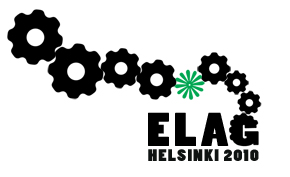Speaker
Jela Steinerova
(Comenius University Bratislava)
Description
The paper analyzes origins of the information ecology concept in the sense of balance between users and digital libraries. It is based on results of two completed research projects on information behavior and interaction of man and information environment. Ecological characteristics of digital libraries are determined as mixture of sources, systems and services managed by a social actor.
Basic questions of the paper cover the following issues: Which changes of users´ behavior are significant for the electronic environment? How should libraries and designers of digital libraries respond to the new patterns of users´ relevance behavior in the electronic environment? Can we develop relevance 2.0 and ecological relevance with the use of new tools for concept mapping in digital libraries?
Results of the first project suggest that human information behavior in the electronic environment is marked by the emphasis on easy access, quick online reading, cognitive mapping, visualization and social networking (horizontal information processing by the “Google generation”). The method of a series of questionnaire surveys in academic libraries was used.
Results of the second project on information use determine perceptions of relevance, relevance in the electronic environment, sorting of relevant information, and types of relevance. Relevance was studied with the use of phenomenographic methodology. Interviews with 21 students were conducted with the aim to explain behaviors while assessing relevance.
Results indicate that new patterns of relevance emerge. Relevance in the electronic environment is re-defined as driven by contexts and non-linear interactions. The same criteria are used through different contexts. Emerging patterns of relevance in the electronic environment indicate needs of flexibility, interactivity and collaborative use. Hierarchy and associations of knowledge organization support relevance judgments. Based on these results concepts of relevance 2.0 and ecological relevance are defined.
Users´ relevance behavior is framed within a new research project devoted to information ecology. Examples of concept maps created as part of a textbook on Information strategies in the electronic environment are mentioned. The maps can help clean information environment and provide ecological tools for efficient information use and for semantic interoperability.
In conclusion, the contribution of information ecology concept to practice of new systems, services, products and digital libraries is summarized.
Primary author
Jela Steinerova
(Comenius University Bratislava)




